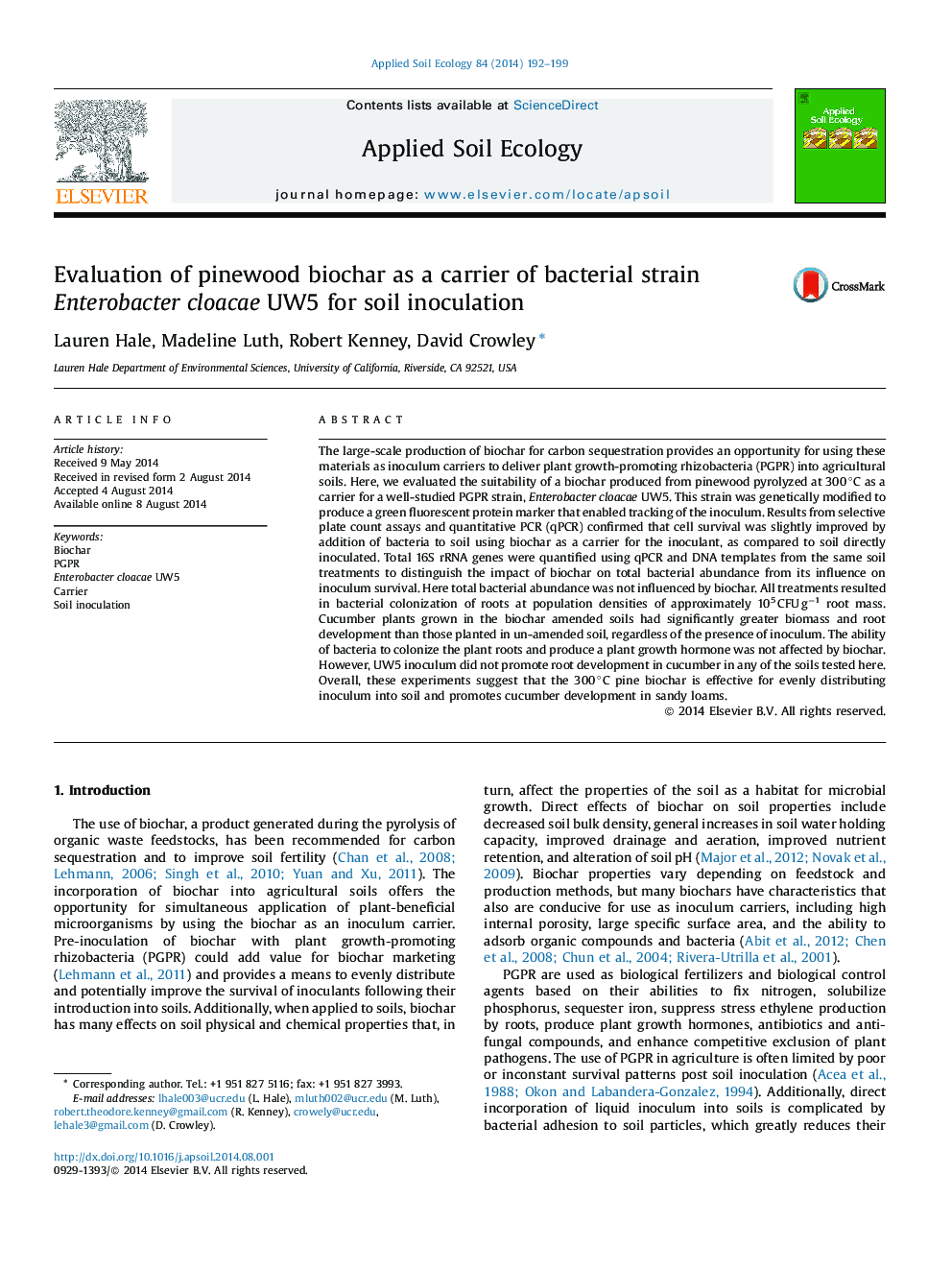| کد مقاله | کد نشریه | سال انتشار | مقاله انگلیسی | نسخه تمام متن |
|---|---|---|---|---|
| 4382181 | 1617799 | 2014 | 8 صفحه PDF | دانلود رایگان |

• The use of 300 °C pinewood biochar as a carrier material resulted in increased survival of Enterobacter cloacae UW5 inoculum as compared to direct soil application.
• Cucumber did not demonstrate significantly different growth in relation to UW5 inoculation.
• Biochar application resulted in significant increases in cucumber root branching and total root length.
• UW5 colonized cucumber roots at high rates with and without biochar amendment.
The large-scale production of biochar for carbon sequestration provides an opportunity for using these materials as inoculum carriers to deliver plant growth-promoting rhizobacteria (PGPR) into agricultural soils. Here, we evaluated the suitability of a biochar produced from pinewood pyrolyzed at 300 °C as a carrier for a well-studied PGPR strain, Enterobacter cloacae UW5. This strain was genetically modified to produce a green fluorescent protein marker that enabled tracking of the inoculum. Results from selective plate count assays and quantitative PCR (qPCR) confirmed that cell survival was slightly improved by addition of bacteria to soil using biochar as a carrier for the inoculant, as compared to soil directly inoculated. Total 16S rRNA genes were quantified using qPCR and DNA templates from the same soil treatments to distinguish the impact of biochar on total bacterial abundance from its influence on inoculum survival. Here total bacterial abundance was not influenced by biochar. All treatments resulted in bacterial colonization of roots at population densities of approximately 105 CFU g−1 root mass. Cucumber plants grown in the biochar amended soils had significantly greater biomass and root development than those planted in un-amended soil, regardless of the presence of inoculum. The ability of bacteria to colonize the plant roots and produce a plant growth hormone was not affected by biochar. However, UW5 inoculum did not promote root development in cucumber in any of the soils tested here. Overall, these experiments suggest that the 300 °C pine biochar is effective for evenly distributing inoculum into soil and promotes cucumber development in sandy loams.
Journal: Applied Soil Ecology - Volume 84, December 2014, Pages 192–199